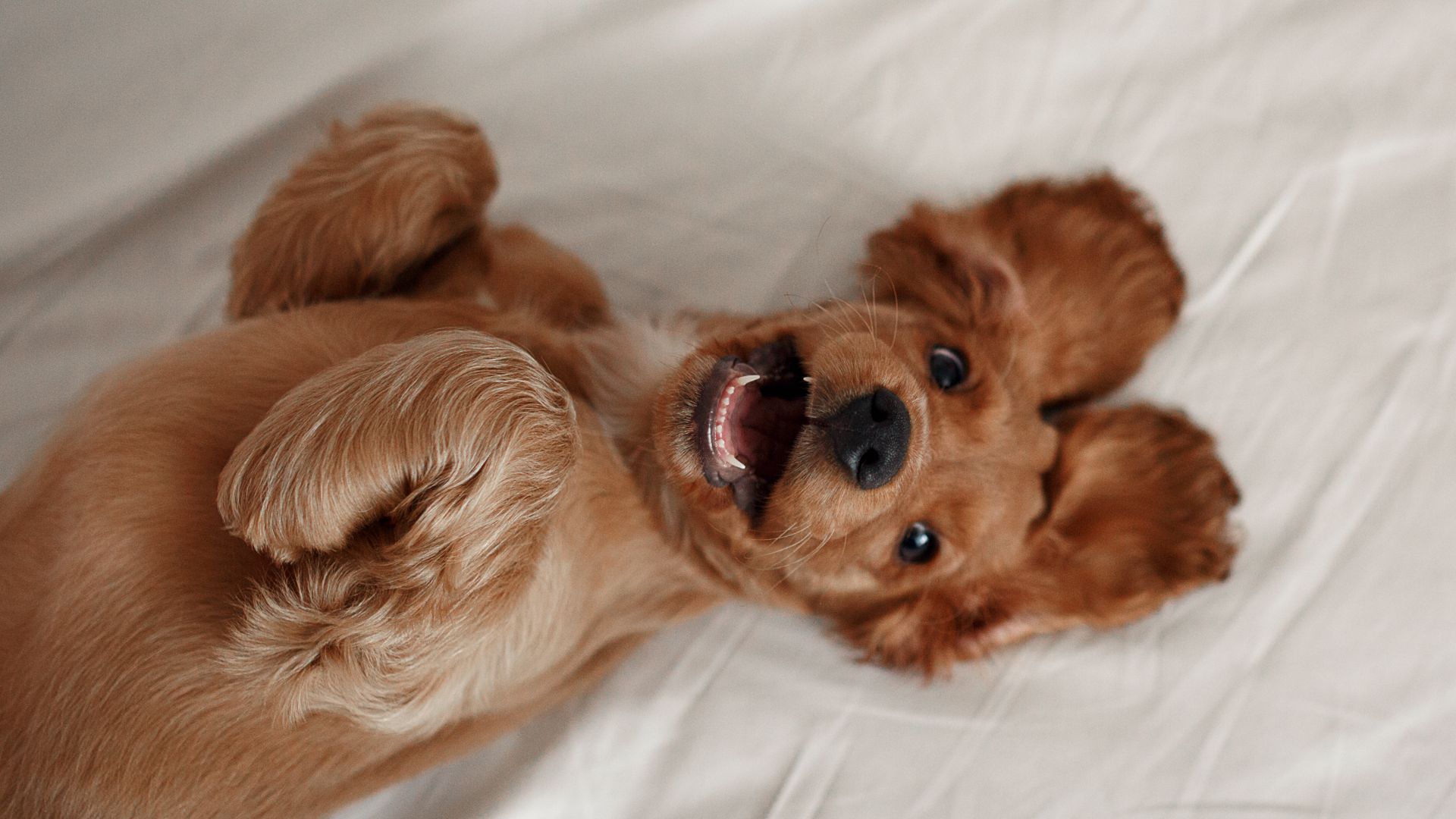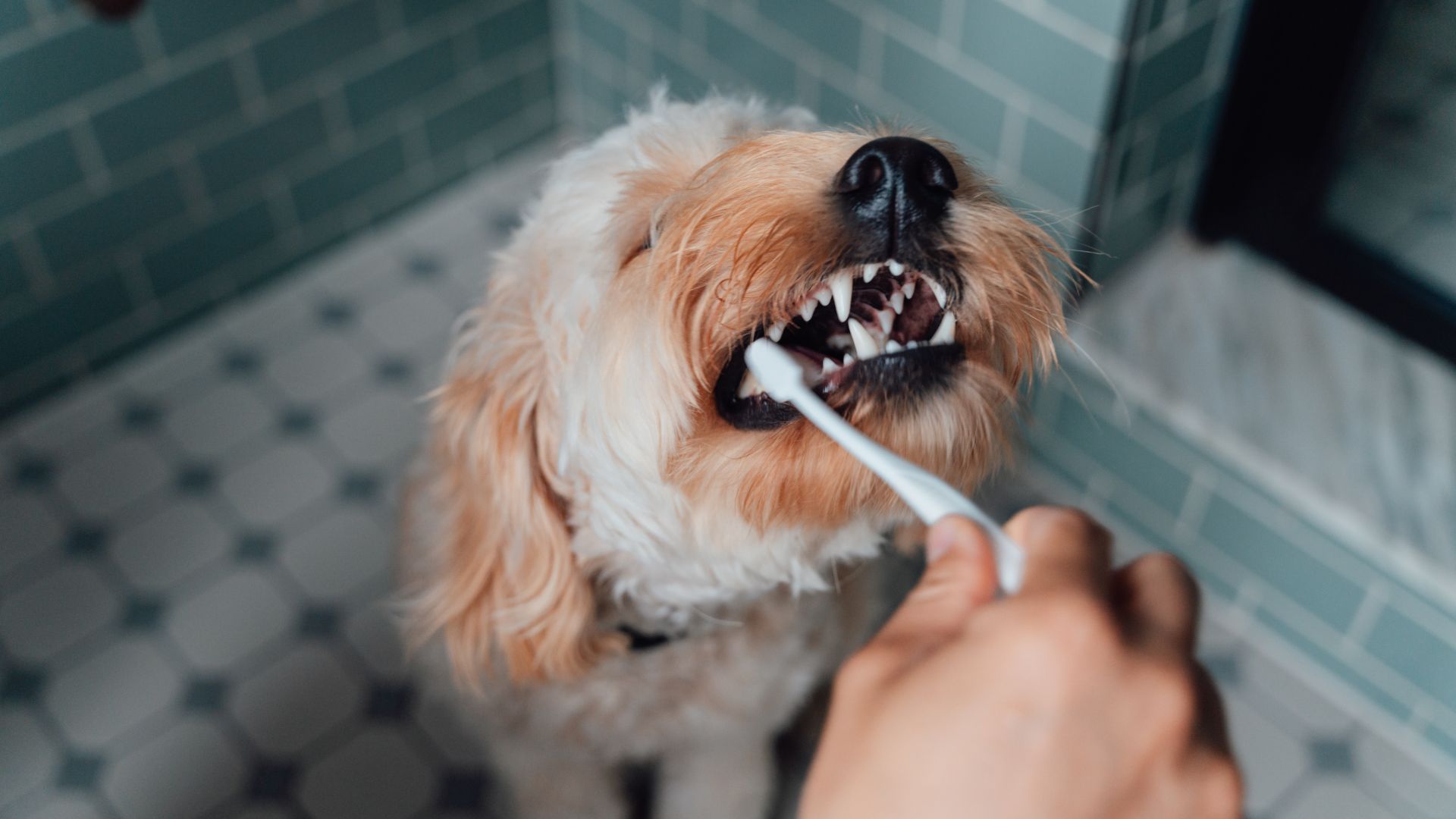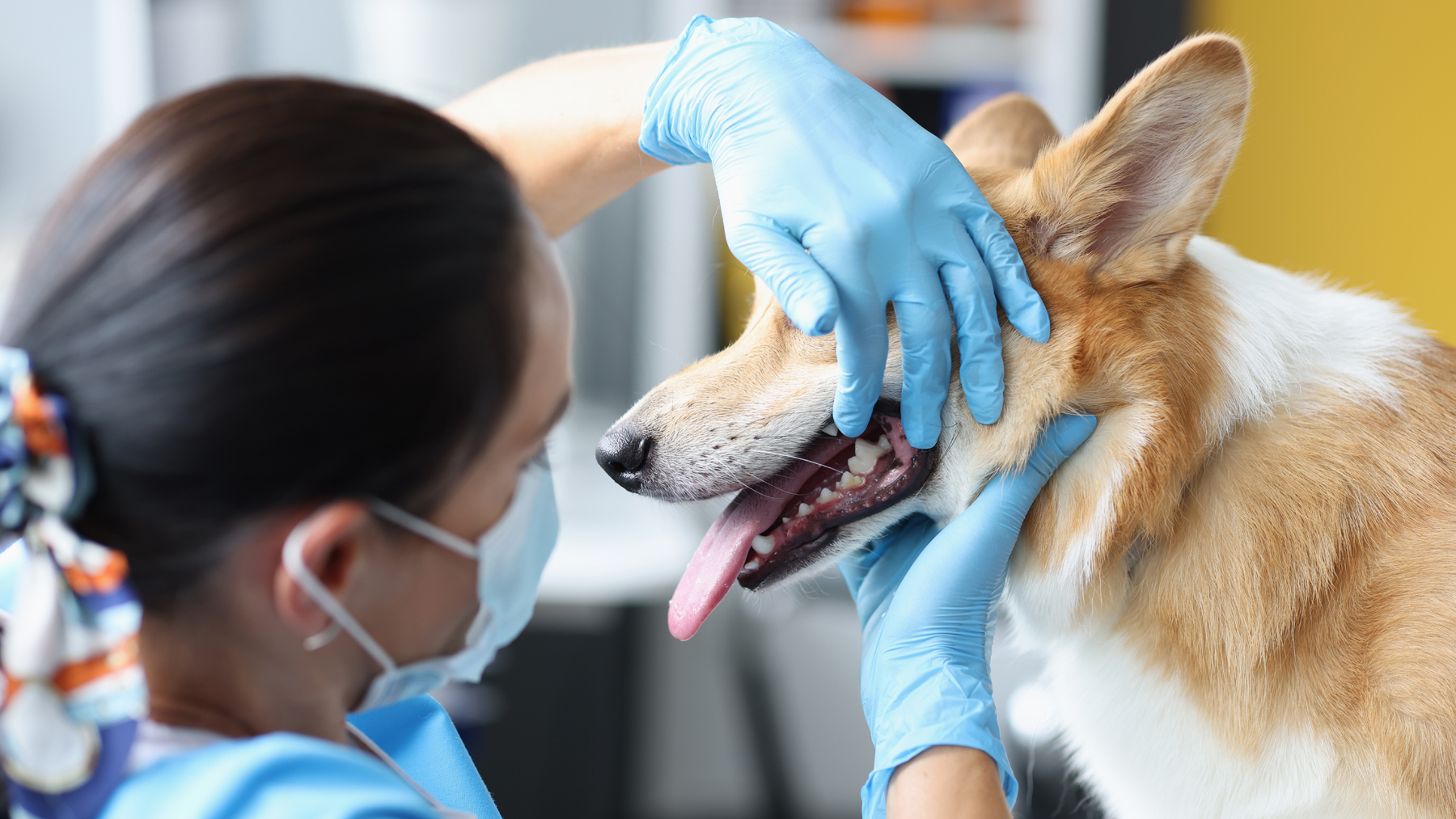
It can be really worrying when we find a loose dog tooth in our adult canine’s mouth or if they actually lose a tooth. This is because dogs have incredibly strong jaws, with teeth capable of ripping flesh and chewing through bone.
If you’ve lived with your dog since they were a puppy you’ve no doubt experienced them puppy teething and losing their first set of teeth. However, it’s not expected for us to see a loose dog tooth in older pets, so when it happens it can be quite a shock. You might discover a loose dog tooth while brushing their teeth, which is a great way to keep an eye on the condition of your canine’s mouth. If the loose tooth issue has progressed to your dog actually losing teeth, then you may find a tooth stuck in their favorite longest-lasting dog chew or see one lying on the floor when you’re cleaning.
We know good oral hygiene is an important indicator of the overall health of our dogs. So what do we do if we find our dog's teeth are loose? We’re here with our go-to guide to ease your concerns and help you take action at this worrying time.
Is it normal for a dog to have a loose tooth?
If you have a young puppy it is normal to notice loose teeth or the loss of teeth. Companion animal vet Dr Rebecca MacMillan says: “During puppyhood, it is normal for a dog to lose their deciduous [milk] teeth from four months of age onwards. So, if you find loose teeth at this time, it is probably nothing to worry about. By six months of age, most dogs will have lost their deciduous teeth and will have permanent adult ones in their place.
“However, if your puppy experiences trauma to their teeth, for example, either through an accident or by biting down on a hard toy or chew, then this could cause loosening too. In this instance, you may notice that the tooth also appears broken or fractured.”
For an adult dog, it isn’t normal to have loose teeth. “Adult teeth are likely to become loose through two main issues, periodontal disease or trauma,” explains Dr MacMillan. “Periodontal disease is the most common reason why your pet’s tooth becomes loose. Tartar buildup, gum inflammation, and damage to the periodontal ligaments that hold the teeth in situ will all contribute to a tooth becoming loose.”
Dr MacMillan’s advice highlights the importance of regular routine dental examinations by a vet. “A loose tooth due to periodontal disease may not be spotted until your dog is under anesthetic and a vet can properly assess the teeth for mobility. However, in other cases, it can be much more obvious, with tooth root exposure seen or the tooth could be at a different angle to normal.”
Additionally – and often more seriously – trauma can cause an adult dog’s teeth to become loose. “This could be from a nasty knock or a fall, or potentially from biting down on an object that is too hard for their teeth to handle.
“Other disease processes like a tumor in the jaw or gum may cause a tooth to become loose. Some metabolic diseases can also have an impact on bone density in the jaw and dental health. In my experience, these issues are much rarer than periodontal disease, however.”
Healthy gums: a checklist
If you’re concerned about the health of your dog’s teeth, the first place to look at is their gums to see if they appear healthy or not. If you’re still unsure, check out this list to familiarize yourself with some of the signs of healthy and unhealthy gums.
According to vet Dr Rachel MacMillan, markers of healthy gums include being...
- pink in color
- moist and soft
- firmly and smoothly following the gumline
- responsive to pressure, in that you should see the gum change from white back to pink when you’ve removed your finger
If, when you examine your dog’s mouth, you aren’t sure what you’re looking at, you may wish to read up on markers of healthy vs unhealthy dog gums.
On top of the gum health itself, look at the color of your dog's teeth. If a tooth has been damaged, then it may have discoloration that’s different to any usual level of plaque your individual dog may have. You might also notice that your dog has got a case of bad breath!

Loose dog tooth: do I need to call the vet?
A loose tooth will need checking by a vet, but the circumstances will dictate the urgency. “If you suspect the tooth is loose due to longstanding periodontal disease, this is not a particular emergency,” says Dr MacMillan. “Often, you will notice other issues like tartar accumulation, gum inflammation, and bad breath. The tooth must be professionally extracted soon, but a check-up can wait until the next available routine appointment at your normal vet clinic.”
However, if your dog has a loose tooth due to trauma, this is an emergency. “Your dog will be in considerable pain and could have other injuries that need addressing,” cautions Dr MacMillan. “In this instance, you should either contact your usual vet, or your emergency out-of-hours provider if your normal vet clinic is closed.
Should I attempt to remove my dog's loose tooth myself?
“Never be tempted to try and pull a loose tooth out by yourself,” warns Dr MacMillan. “It could be fractured, so you will risk leaving broken bits of root behind in attempting to extract it yourself. Handling their mouth in this way will also be extremely uncomfortable for your dog and you are putting yourself at real risk of being bitten.”
She adds: “If a tooth has been made loose because of an accident it may be possible to save it, so getting your dog to a vet promptly is crucial.

What aftercare is required for a loose dog tooth?
It’s important to continue with regular tooth brushing. When cleaning your dog’s teeth, make sure you’re using a dog-specific toothpaste, not a human one as it often contains xylitol which is toxic to dogs. Regular checkups with your dog’s veterinary hygienist are also a good idea.
The American Veterinary Medical Association recommends that “Your pet’s teeth and gums should be checked at least once a year by your vet for early signs of problems and to keep your pet’s mouth healthy.”
Now that you're clued up on loose dog teeth you might be wondering 'do dog teeth fall out?', especially for adult dogs. We got a vet to delve into the ins and outs of adult tooth loss in dogs and what to look out for.







